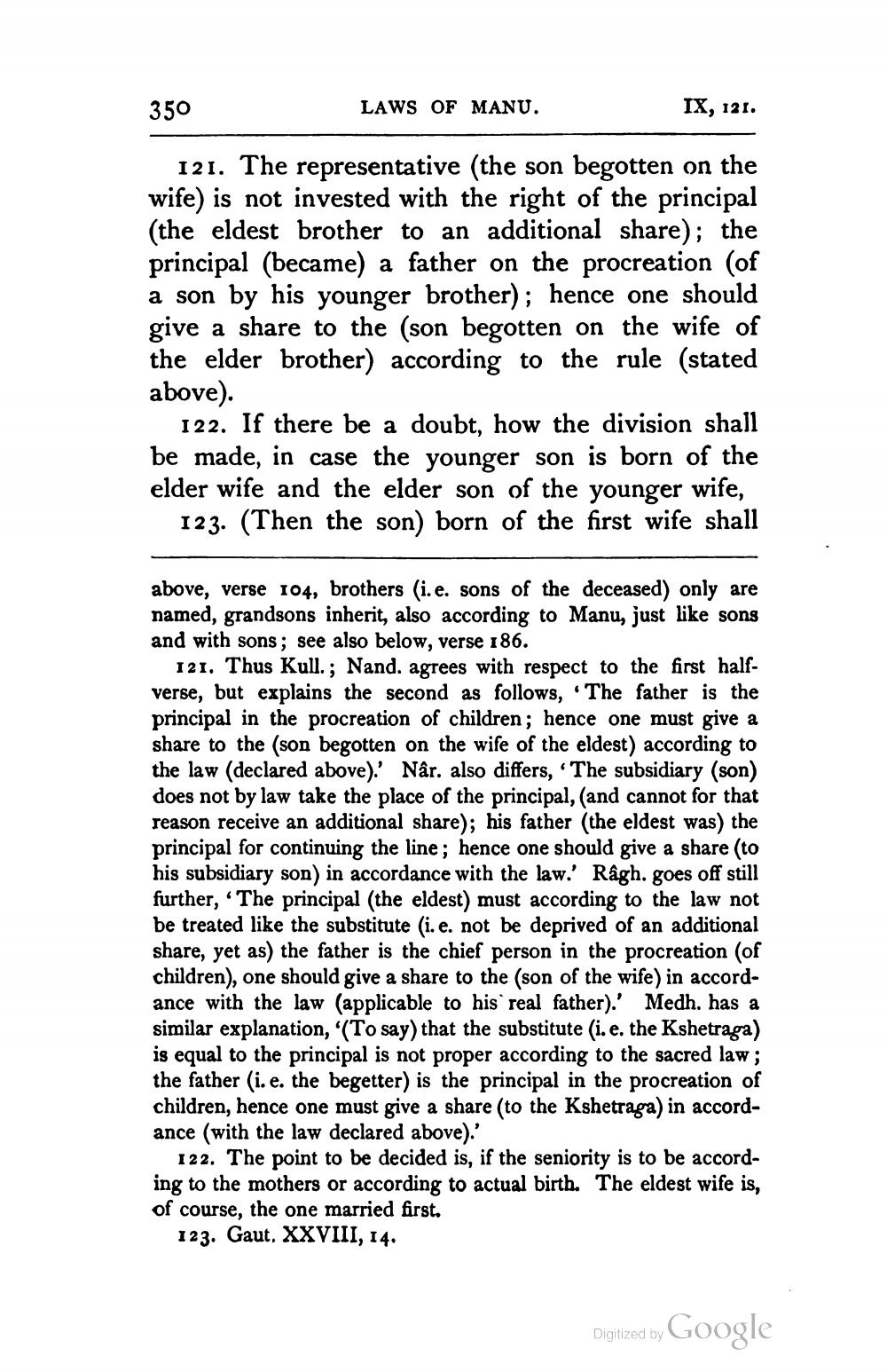________________
350
LAWS OF MANU.
IX, 121.
121. The representative (the son begotten on the wife) is not invested with the right of the principal (the eldest brother to an additional share); the principal (became) a father on the procreation (of a son by his younger brother); hence one should give a share to the (son begotten on the wife of the elder brother) according to the rule (stated above).
122. If there be a doubt, how the division shall be made, in case the younger son is born of the elder wife and the elder son of the younger wife,
123. (Then the son) born of the first wife shall
above, verse 104, brothers (i.e. sons of the deceased) only are named, grandsons inherit, also according to Manu, just like sons and with sons; see also below, verse 186.
121. Thus Kull. ; Nand. agrees with respect to the first halfverse, but explains the second as follows, The father is the principal in the procreation of children; hence one must give a share to the (son begotten on the wife of the eldest) according to the law (declared above).' Nar. also differs, The subsidiary (son) does not by law take the place of the principal, (and cannot for that reason receive an additional share); his father (the eldest was) the principal for continuing the line; hence one should give a share (to his subsidiary son) in accordance with the law.' Ragh. goes off still further, 'The principal (the eldest) must according to the law not be treated like the substitute (i.e. not be deprived of an additional share, yet as) the father is the chief person in the procreation (of children), one should give a share to the son of the wife) in accordance with the law (applicable to his real father).' Medh. has a similar explanation,'(To say) that the substitute (i.e. the Kshetraga) is equal to the principal is not proper according to the sacred law; the father (i.e. the begetter) is the principal in the procreation of children, hence one must give a share (to the Kshetraga) in accordance (with the law declared above).'
122. The point to be decided is, if the seniority is to be according to the mothers or according to actual birth. The eldest wife is, of course, the one married first.
123. Gaut. XXVIII, 14.
Digitized by Google




